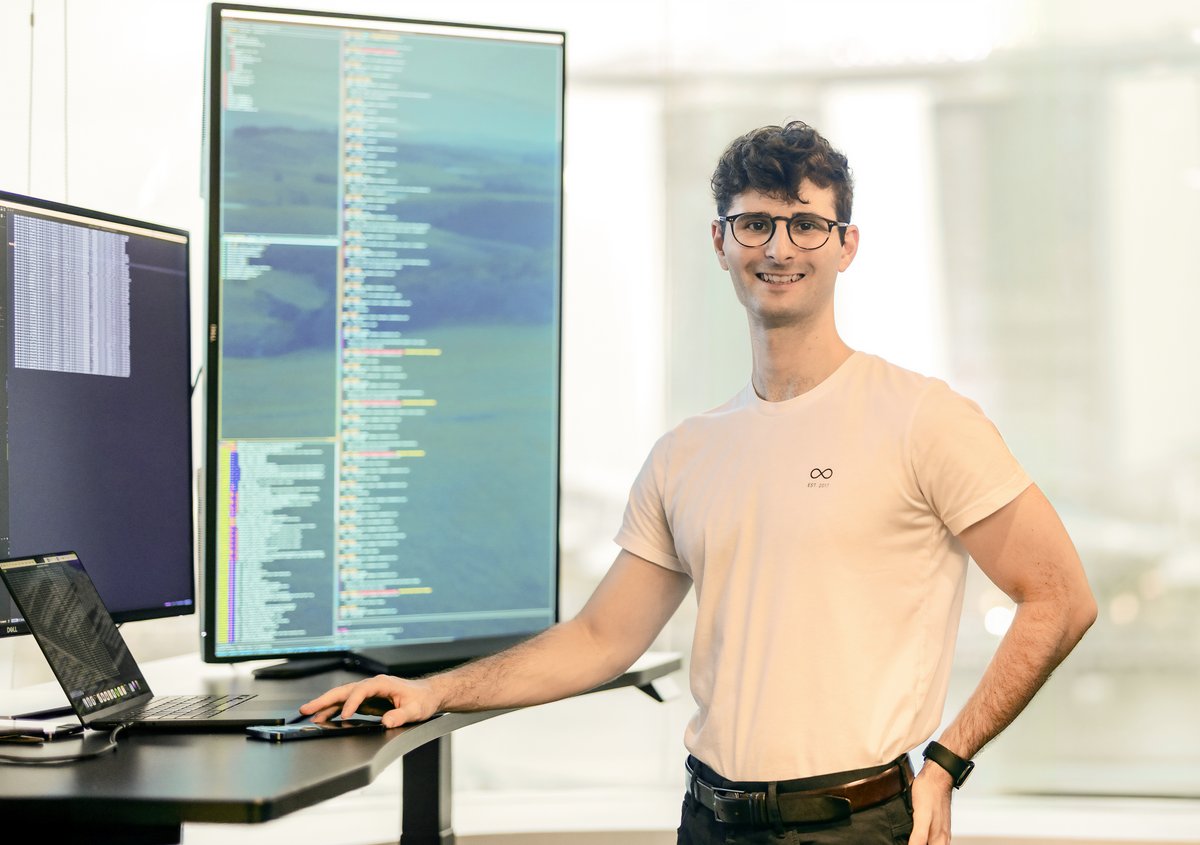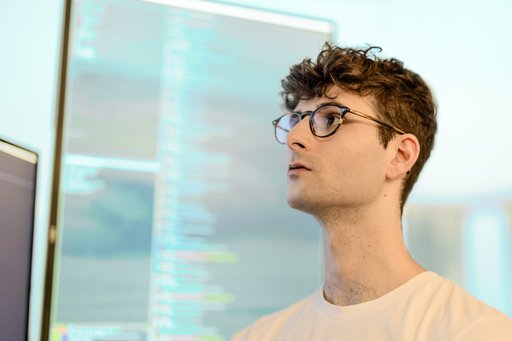
Jonathan Eilath from Denmark.
Software Developer at InCommodities, based in Singapore.
Master’s degree in Computer Science from Aarhus University in 2024. Thesis: FAEST for Memory-Constrained Devices with Side-Channel Analysis supervised by Diego F. Aranha and Peter Scholl.
Bachelor’s degree in Computer Science from Aarhus University in 2022.
Jonathan Eilath completed his Master’s in Computer Science in 2024. Today, he works as a Software Developer at the energy trading company InCommodities at their office in Singapore. Here, computer science is not just a tool—it’s a fundamental part of the business.
Jonathan had already taught himself how to code before starting university. But at some point, he realised that he needed more—a foundational knowledge and deeper understanding.
“I reached a point where I realised that if I wanted to understand what I was doing—and not just do it by routine—I needed to study computer science. I lacked the mathematical and analytical understanding of what I was doing. Programming is my tool, but computer science is about much more than writing code—it’s about understanding, analysing, and creating solutions.
Today, this skillset is even more relevant. AI tools make it easy to write code, but hard to understand or analyse why something works—or why it doesn’t. This is where computer science is a huge strength.”
It’s exactly the academic depth and the way computer science teaches you to think that made the biggest difference for him—both during his studies and in his professional life.
“In general, I’d say that studying computer science teaches you to think differently. You develop a highly analytical approach to problem-solving, and that’s an incredibly important lifelong skill.”
During his Bachelor’s, Jonathan found that a broad introduction to everything from algorithms and data structures to complexity theory gave him a strong foundation. And during the Master’s, everything was taken to a new level.
“When I started my Master’s, most of the teaching shifted from textbooks to research papers. I felt close to the research—and like I could be part of it, if I had the dedication.”
Courses in cryptography and machine learning made a lasting impression on him:
“I especially appreciated how the math removed the mystery from the technology. Everything I’d learned earlier came together. It was really satisfying.”
Alongside his studies, Jonathan was active as a student tutor and chair of the department’s Friday bar, Fredagscafeen. He also ran a small IT consultancy, and found that the hands-on work complemented his studies well—as long as priorities were kept in check.
“A student job or side project is a good idea, but the most important thing is the education. What you learn at work can always be picked up later—but the same can’t always be said for what you learn at university.”
After finishing his degree, Jonathan accepted a new position at InCommodities, which had just opened an office in Singapore. There, he works on energy trading in the Japanese and Australian markets.
“I was really drawn to the idea of building something from scratch—while also experiencing the world. It’s been a fantastic start to my working life.”
He finds that his studies have equipped him with a versatile skillset that he draws on every day:
“Some days are about software architecture. Other days, I use knowledge of algorithms, optimisation, or machine learning. And being able to read and understand research papers is incredibly valuable in my work.”
A typical workday starts with exercise, and then he heads into the office around lunchtime. This fits both his natural rhythm and the collaboration with his colleagues in Aarhus.
“I work closely with analysts and quantitative specialists. The entire business is built on data, where we try to predict: where, when, and how much electricity is needed.My job is to turn huge amounts of data into usable models and systems that support our traders in making deals on the Japanese and Australian energy markets.”

One of the things that surprised Jonathan the most is how many different areas computer science actually covers.
“At InCommodities, we use machine learning to forecast the weather, optimisation models to predict market behaviour, and we work under the EU’s NIS 2 directive, so cybersecurity is also a big focus.”
He also experiences high demand for computer science graduates:
“You really feel the enormous demand for talented people once you’re on the other side of your education. I’ve actually had to turn down several job offers. At InCommodities, I’m especially happy with the culture and the problems we solve. It’s a flat organisation, and decisions are driven by the expertise of the team—so you have the chance to make an impact from day one.”
“Don’t think you’re the only one who finds things difficult—because you’re not. Use each other and the study environment to learn and grow. And if you haven’t programmed before—don’t worry. The difference levels out quickly.”